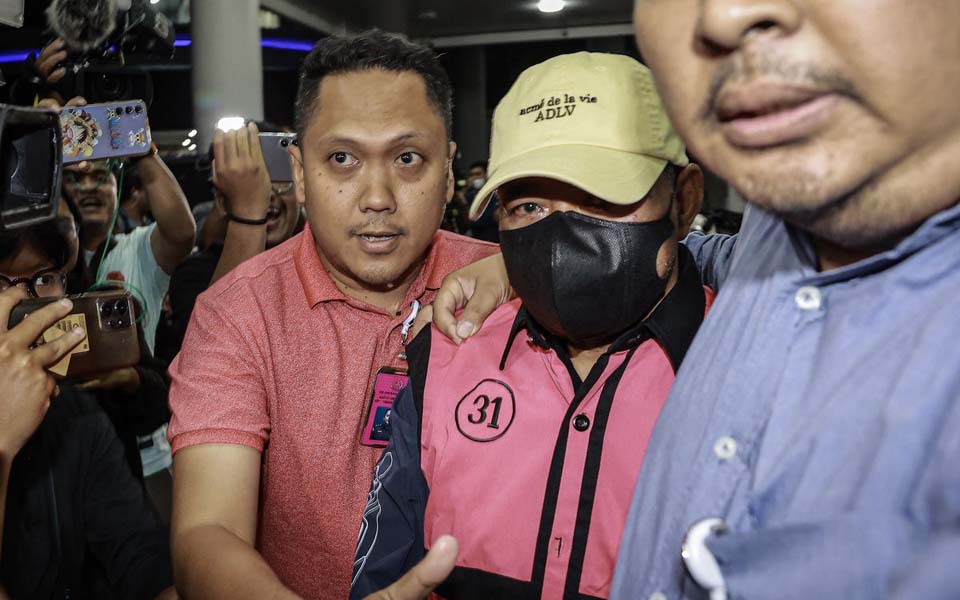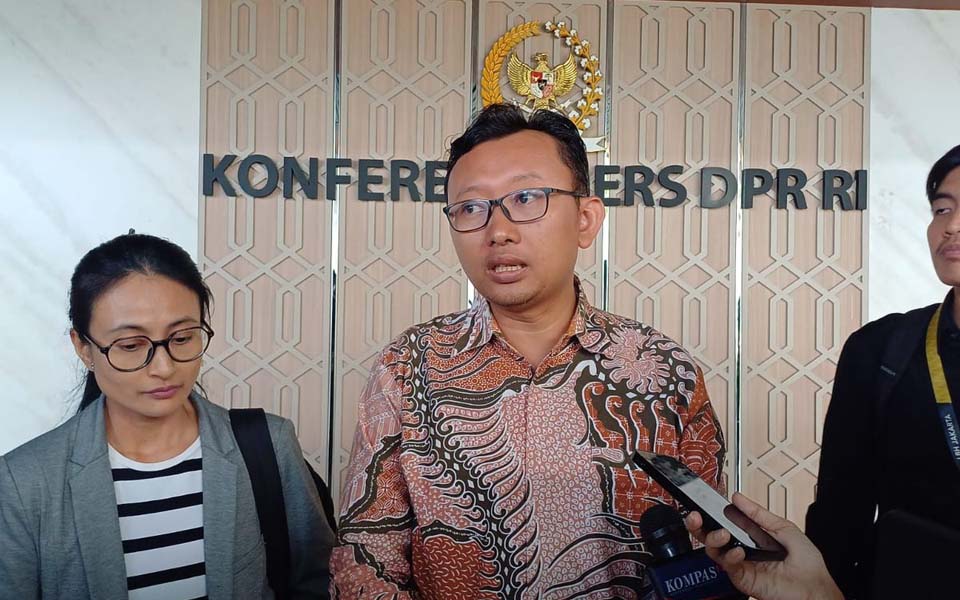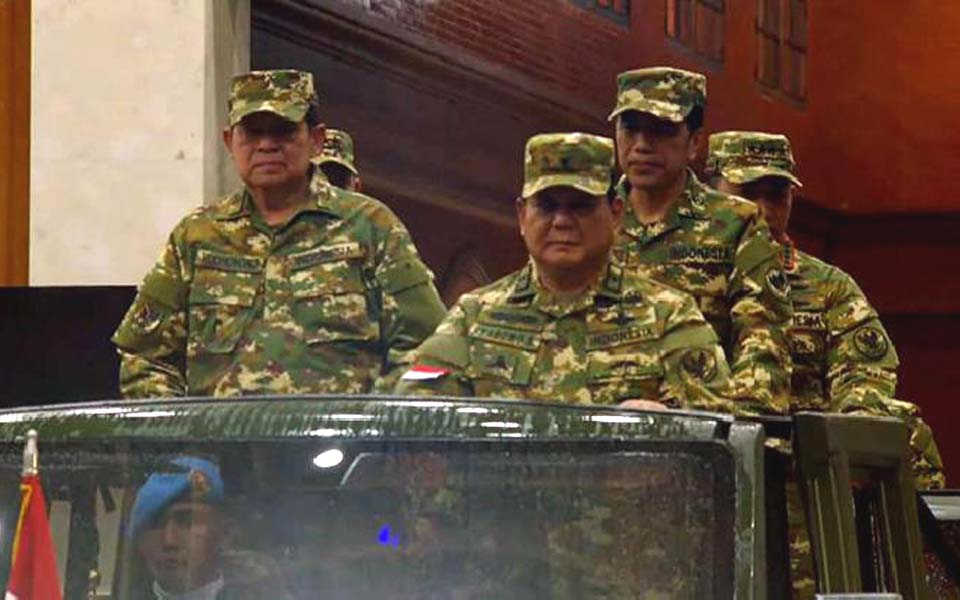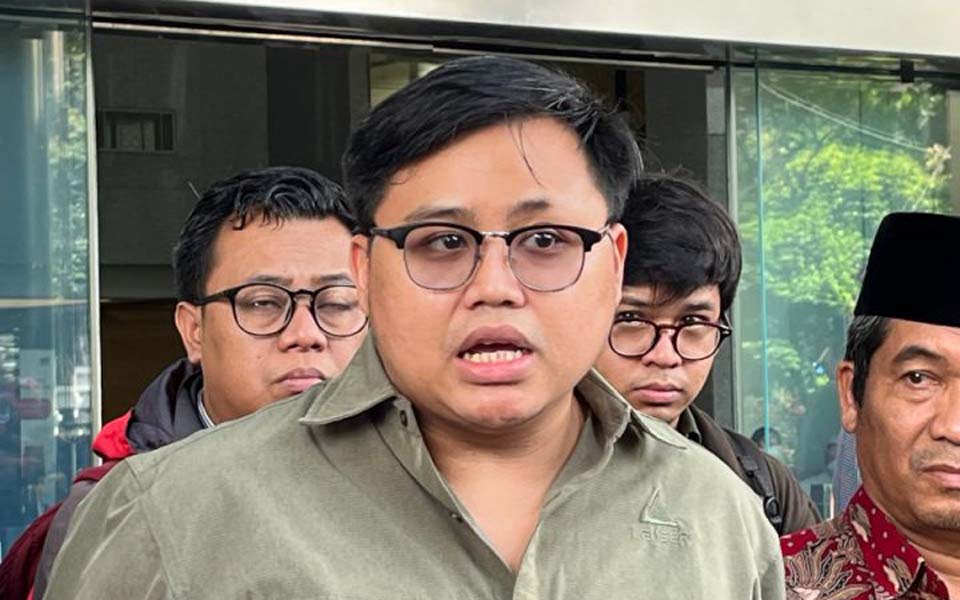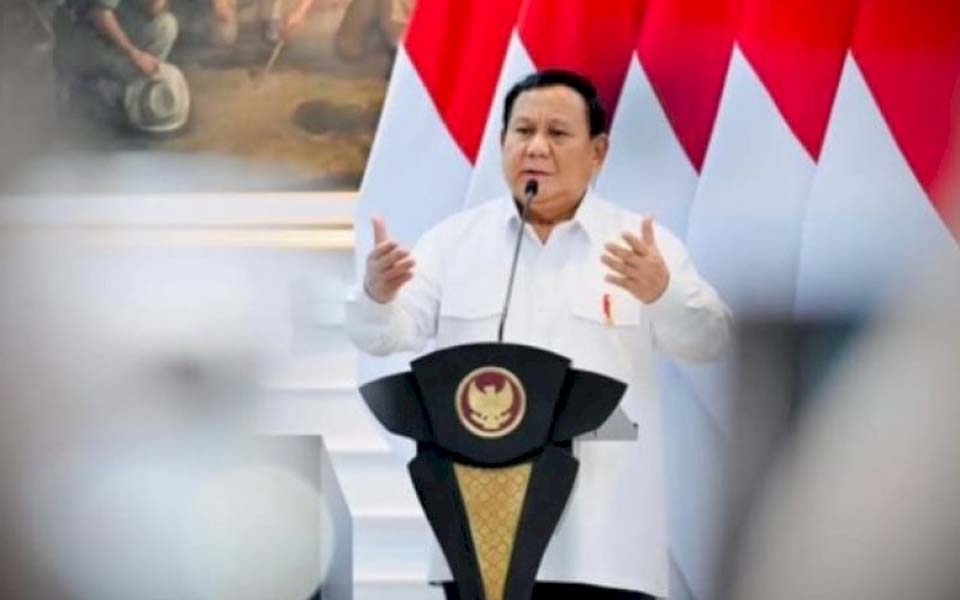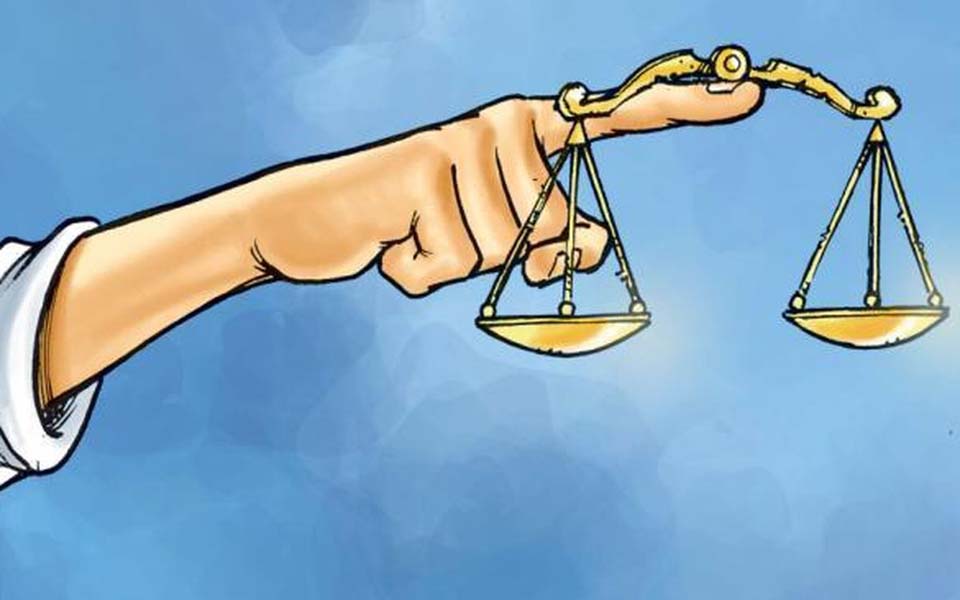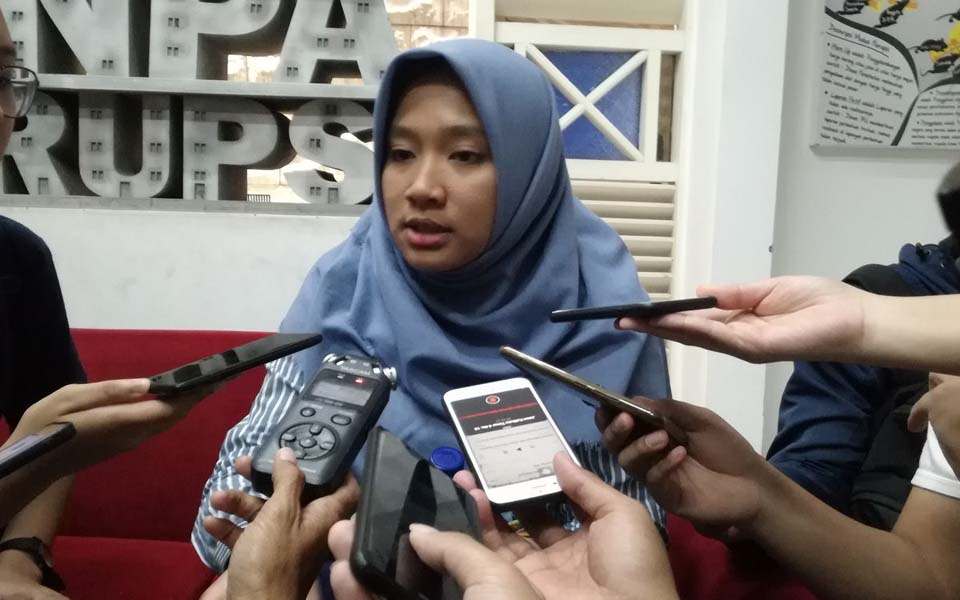Jakarta – The Social Alliance for Democratic Justice (AMUKK) held a protest action opposing the first stage in the enactment of the Draft Criminal Code (RKUHP) in front of the House of Representatives (DPR) building in Jakarta on Monday September 16.
The hundreds of protesters who attended the action could be seen carrying posters containing their demands. Four huge banners with messages opposing the RKUHP were also put up on the front gate of the DPR building.
Women’s activist Lini Zurlia said that if ratified, the RKUHP will mean the criminalisation of democracy. She believes that the RKUHP still contains many problems both in terms of substance and the process of its deliberations.
“The RKUHP which they want to ratify is ridden with criminalisation. So all of the articles which are regulated in the RKUHP are ridden with criminalisation”, said Zurlia in a speech from the command vehicle.
Zurlia said that there are dozens of problematic article in the RKUHP with the potential to threaten social freedoms, activists and journalists. The RKUHP has the potential to criminalise everyone.
Furthermore, Zurlia criticised the DPR for not involving the public in the deliberations on the RKUHP. As representatives of the people, she said the DPR wants to enact the RKUHP unitarily and secretively.
The DPR, she said, has held secret sessions to deliberate the RKUHP at five-star hotels. “If the sessions [are held] in five-star hotels how can we lowly people monitor them”, she said.
On the other hand, Zurlia also warned the DPR that enacting the RKUHP will create suffering for the younger generation.
“If the RKUHP is ratified, it won’t be them (the DPR) who suffer, but the younger generation like me and my friends. How can the DPR put together a RKUHP without involving the people who will be directly impacted upon”, she said.
In addition to the RKUHP, Zurlia also explained that they also reject revisions to the Corruption Eradication Commission (KPK) Law and are asking for the enactment of the Draft Law on the Elimination of Sexual Violence to be accelerated.
In a statement released by AMUKK, they cited 20 problems with the version of the RKUHP dated August 28, 2019.
First, the RKUHP has no detailed explanation of the government’s claims about the method of calculating punishments. Second, the presence of colonial-era articles such as insulting the president (Articles 218-220), insulting the legitimate government (Articles 240-241) and insulting a public body (Articles 353-354).
“Along with Articles 440-443 of the RKUHP on criminal stipulations on defamation which still carry a jail sentence”, read the press release.
Third, Articles 234-235 on insulting state symbols and the national flag, which tend to criminalise actions in a formal manner with heavy sentences.
Fourth, Article 2 in conjunction with Article 598 on regulating laws which live in society, which will give birth to legal uncertainty and rob traditional communities rights in upholding their customary laws.
Fifth, Article 67 and Articles 98-102 on the death sentence which should be abolished and instead make the draft even worse.
Sixth, the minimum alternatives to jail sentences which will not overcome the problems of overcapacity at correctional institutions and jails.
Seventh, Article 167 on makar (treason, subversion, rebellion) which still do not refer to the original meaning. The term makar, which comes from the Dutch term “Aanslag” also, means to “attack” in Indonesian.
Eighth, Articles 281-282 on contempt of court which have the potential to curb freedom of expression and the press.
Ninth, Article 304 on the formulations of the crime of insulting religion (blasphemy) which do not contain important elements, namely the intent to commit blasphemy and conflict with the guarantees on fulfilling the right to embrace and pursue a religion.
Tenth, Article 417 on all of the crimes related to sex outside of marriage will infringe upon the private lives of citizens. These articles also have the potential to criminalise rape victims and will perpetuate child marriage because it is seen as a solution outside of the criminal justice system.
Eleventh, Article 414 on jail sentences for those who promote contraceptive devices which conflicts with the education policies on controlling HIV/AIDS.
Twelfth, Article 432 on people who are vagrant which has the potential to criminalise the poor. Yet the 1945 Constitution mandates the state to protect the poor and abandoned children.
Thirteen, Article 251 and Articles 470-472 on the crime of abortion which has the potential to criminalise women who undergo an abortion on medical grounds or because they are rape victims. This also has the potential to criminalise medical practitioners who assist in abortions.
Fourteenth, Articles 346-346 and Article 626 which will weaken law enforcement of environmental crimes which are stipulated in Law Number 32/2009 and Law Number 23/1997.
Fifteenth, Article 78 on disruptions to land, seeds, plants and yards which could criminalise owners of livestock if the animals cross into gardens or plantations belonging to other people.
Sixteenth, Article 46 on criminal liability should not cover corporations which are not a legal entity.
Seventeenth, Articles 611-615 on drug related crimes which conflict with community healthcare policies and the Narcotics Law. Regulations on administrative aspects such as the guarantee of rehabilitation and the classification of narcotics will be obstructed by the inclusion of drug related crimes in the RKUHP.
Eighteenth, Articles 604-607 on corruption which have the potential to duplicate formulations and abolish guarantees of lex specialis (special laws) for Corruption Courts.
Nineteenth, Articles 599-600 on gross human rights violations which are not in accordance with international human rights standards.
Finally, Articles 617-627 RKUHP on transitional stipulations and closing stipulations which still have many technical errors and are should not be included in the transitional and closing stipulations. (jps/sur)
[Translated by James Balowski. The original title of the article was “Demo RKUHP di DPR, Orator Sindir Rapat Pembahasan di Hotel”.]






